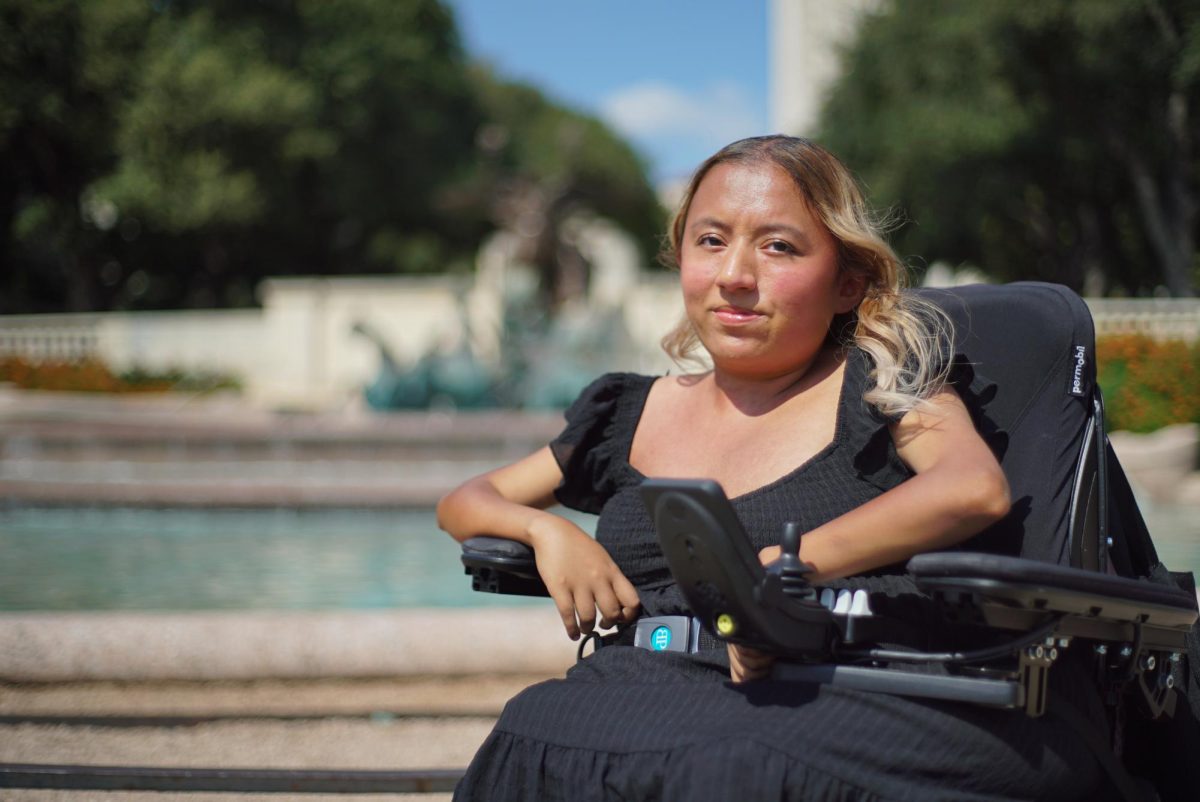Fabiola Amaya started a petition on Sept. 21 calling for the University to improve restroom accessibility for disabled students. The petition now has over 600 signatures, with 16 on-campus organizations as co-signers.
In her petition, Amaya, a disabled social work senior, demands the University ensure all on-campus accessible restrooms meet the standards of the Americans with Disabilities Act. ADA requirements include a turning space of 60 inches within stalls, toilet bowls 17 to 19 inches above the ground (from top of the seat) and sinks no more than 34 inches above the floor.
In the University’s 2024 ADA Title II Self-Evaluation and Transition Plan, which provides an overview of its efforts to comply with ADA requirements, the institution recognized its biggest deficiency with ADA compliance is restrooms. According to the plan, almost 30% of UT’s total deficiencies fall under this category.
Amaya said she started the petition after she hurt her arm and knee due to the lack of space in a handicapped restroom. After the incident, she contacted the ADA coordinator on campus and other University administration to discuss the injury. Although the ADA coordinator provided her access to a staff-only restroom, Amaya said this is not a solution to the campus-wide accessibility problem.
“I am now able to use the restroom in between classes, but what about other students in wheelchairs who don’t have access to that restroom?” Amaya said. “What about the dozens of other buildings on campus? (This solution is) definitely not enough for what we deserve as disabled students.”
Jennifer Maedgen, the ADA coordinator Amaya spoke to, said in an email the University funded over $10 million in ADA restroom renovations over the last 12 years. She said there are currently several renovation projects in the design development phase and others being taken into consideration.
Aria Welch, a biology and sociology senior, helped Amaya write her communication to the ADA coordinator and University administration. While she appreciated Maegden responding to their message, she said it does not fully address the demands in the petition.
“People who are passionate, concerned and affected (by) this issue are well aware … of the previous measures that have been taken to bring restrooms up to compliance,” Welch said. “The concern is not that no updates have been done or no renovations have been done. The current state is not adequate for the present day.”
Maedgen said in an email that she agreed to meet with Amaya and her peers to discuss their demands. However, Welch said Maedgen has not yet set a date for the meeting.
Amaya said she hopes she can convince Maedgen during their meeting to expedite the restroom renovation process to ensure all disabled students can comfortably use the restroom. She said she also wants to discuss her demands with other University administration in charge of overseeing funding allocations.
“Something we say in the disabled community is that your ‘abled-body is temporary,’” Amaya said. “You could become disabled at literally any point in your life. (We) advocate for (this petition) and support it because it’s a basic human right that is being actively violated.”














